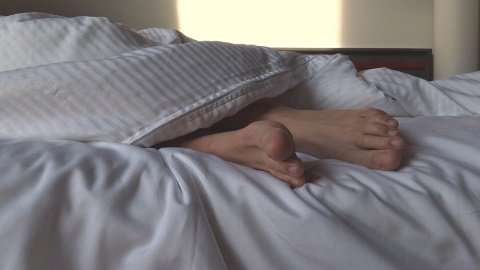Duration of sleep increases while sleeping difficulties decrease after retirement

When people retire from work life, they sleep approximately 20 minutes longer than before retirement. The quality of sleep also improves, as retired people experience fewer early morning awakenings or nonrestorative sleep, unlike those in their last working years.
Researchers at the University of Turku, Finland, along with their collaborators, discovered that self-reported duration of sleep increased approximately 20 minutes after retirement, and stayed on the achieved level for years after retirement. Duration of sleep increased especially for people who reported sleep difficulties or were heavy alcohol users prior to retirement. The duration of sleep increased the most for people who did not get enough sleep during their employment, and they slept 45 minutes longer during their retirement.
"A sufficient amount of sleep is very important for our health and functioning. Individuals have different needs of sleep, but it is recommended for people over the age of 65 to sleep for 7-8 hours a night. Retiring enables people to sleep longer, as work schedules no longer determine the times for sleeping and waking up," says doctoral candidate Saana Myllyntausta from the University of Turku, whose dissertation research is part of the study.
During their last years of employment, sleep difficulties were experienced by 30 percent of subjects. After retiring, only 26 percent were experiencing sleep difficulties. The researchers discovered that among different kinds of sleep difficulties, people experienced the greatest decrease via early morning awakenings and nonrestorative sleep, in which a person experiences tiredness and fatigue after sleeping for a regular duration. Sleep difficulties decreased especially among people who reported their work as stressful, and their health as poor before retirement. Sleep difficulties decreased the most for people who experienced psychological distress before retirement.
"For example, work-related stress is known to disturb sleep. One reason for the decrease in sleeping difficulties during retirement could be the removal of work-related stress," says Myllyntausta.
The study followed approximately 5,800 people who participated in the Finnish Public Sector study by the Finnish Institution of Occupational Health and who retired on a statutory basis in 2000-2011. The participants estimated their sleep duration and the prevalence of different kinds of sleep difficulties in surveys before and after retiring.
More information: Saana Myllyntausta et al, Changes in Sleep Difficulties During the Transition to Statutory Retirement, Sleep (2017). DOI: 10.1093/sleep/zsx182
















